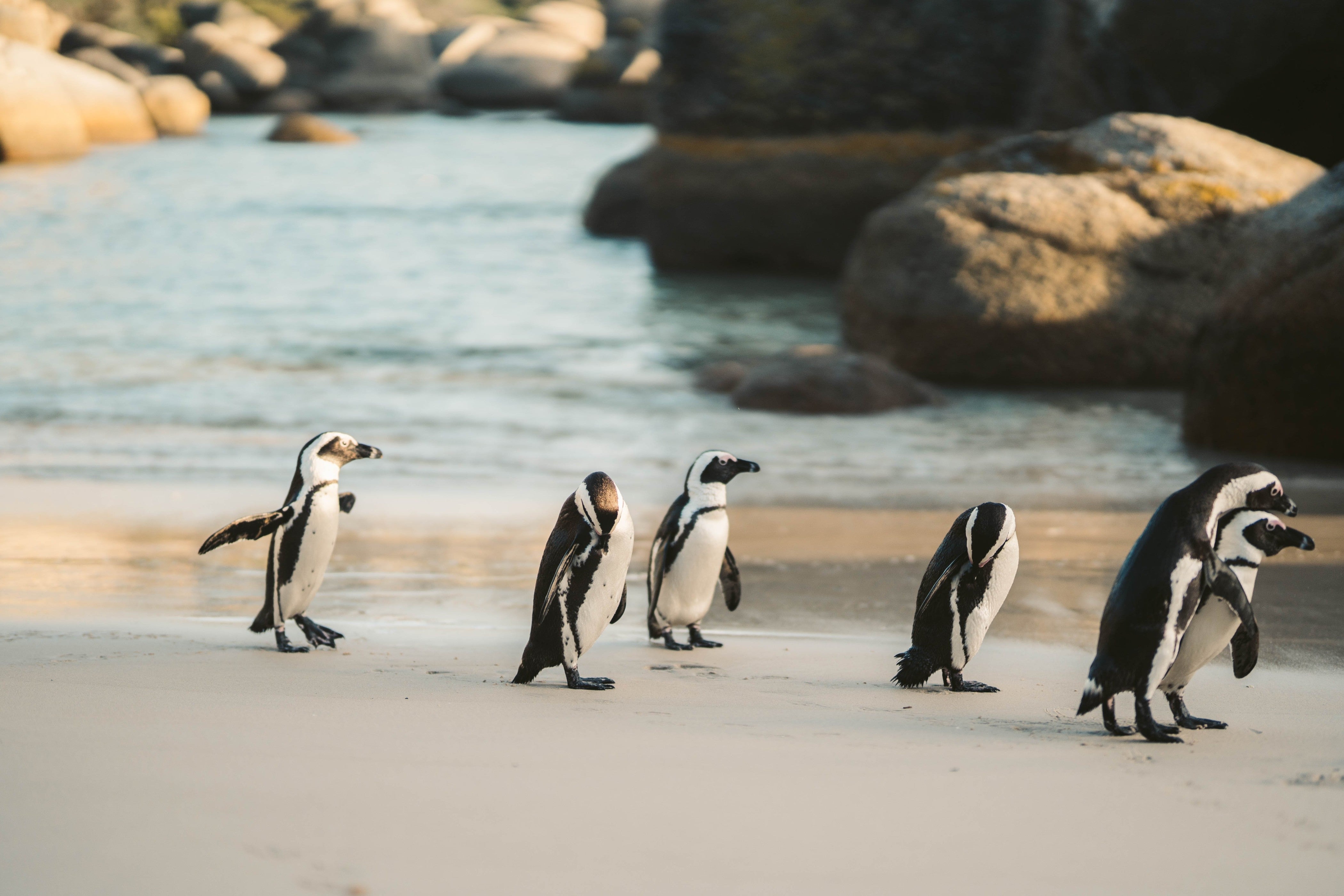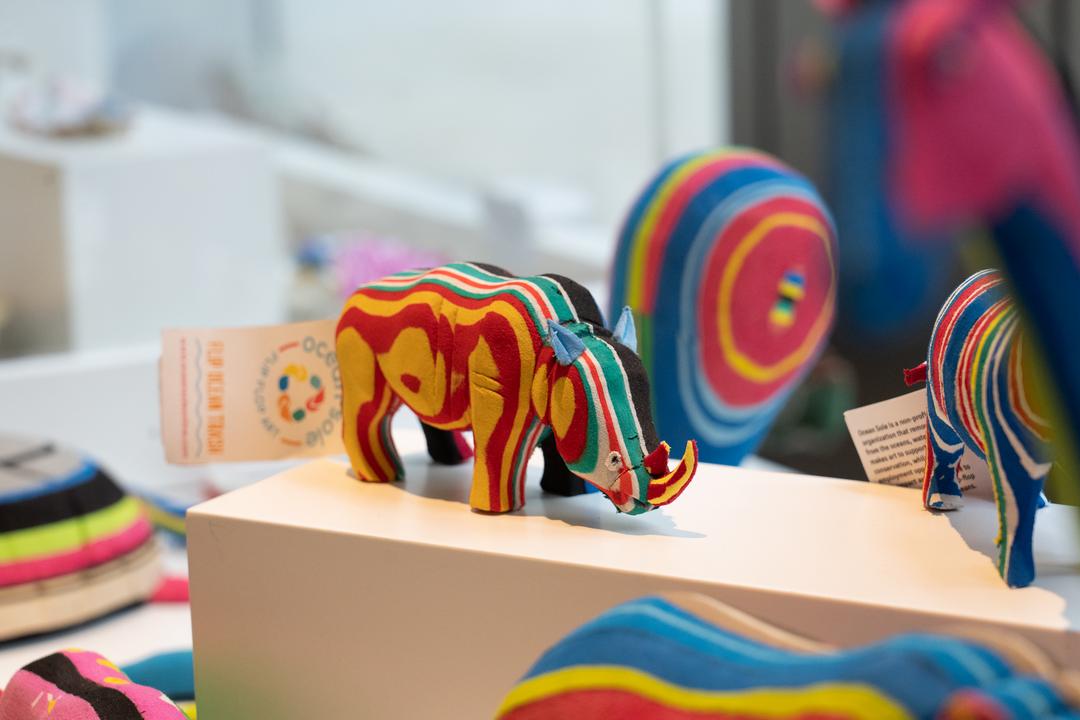Penguins are iconic and beloved creatures known for their distinctive black-and-white colouring, waddling walk, and ability to thrive in harsh, cold environments. Penguin Awareness Day is celebrated on January 20th each year. This day is dedicated to raising awareness about penguins, their habitats, and the conservation efforts needed to protect these fascinating birds.
Penguins play a significant role in their ecosystems and contribute to marine environments' overall health and balance. Here are several ways in which penguins help the ecosystem:
- Regulation of Prey Populations: Penguins primarily feed on fish and krill. By consuming these prey species, penguins help regulate their populations, preventing the overpopulation of certain species and maintaining a balanced ecosystem.
- Nutrient Cycling: Penguin colonies produce large amounts of guano (bird droppings) that contain valuable nutrients, including nitrogen and phosphorus. These nutrients enrich the surrounding soil and contribute to the ecosystem's productivity. In some cases, the guano produced by penguins has been historically harvested as fertiliser.
- Food for Predators: Penguins are an essential food source for predators, including seals and orcas. Their presence in the food web supports the populations of higher trophic levels and contributes to the biodiversity of marine ecosystems.
- Indicator Species: Penguins are considered indicator species, meaning changes in their populations or behaviors can indicate broader environmental changes. Monitoring penguin populations and their health can provide early warnings of ecosystem disturbances, such as overfishing, climate change, or pollution.

Penguins in their habitat
The International Union for Conservation of Nature (IUCN) lists the African Penguin as Endangered. This is primarily due to a combination of human-related and natural threats. Here are some of the key factors contributing to the endangerment of penguins:
- Climate Change: Climate change has a significant impact on penguin habitats. Rising temperatures can alter ocean currents and affect the distribution of prey species, making it more challenging for penguins to find food. Additionally, melting ice and changes in sea ice patterns can impact breeding sites and reduce the availability of suitable nesting sites.
- Overfishing: Overfishing depletes fish and krill populations, the primary food source for many penguin species. Penguins, particularly those in the Southern Hemisphere, rely on these marine resources for sustenance. The depletion of these resources can lead to food shortages, affecting penguin populations.
- Habitat Destruction: Human activities, such as coastal development, can destroy or disturb penguin habitats. Penguins often nest in specific areas, and disruptions to these locations can negatively impact their breeding success.
- Oil Pollution: Oil spills pose a significant threat to penguins. When oil is released into the ocean, it can coat penguins' feathers, reducing their insulation and making it difficult for them to maintain buoyancy. Ingesting oil-contaminated prey can also harm their internal organs.
If you're interested in helping penguins and contributing to their conservation, there are several actions you can take:
- Support Conservation Organizations: Contribute to or volunteer with organisations dedicated to penguin conservation. These groups work on research, habitat protection, and raising awareness. Examples include the World Wildlife Fund (WWF), Oceanites, and the Global Penguin Society.
- Responsible Tourism: If you're visiting areas with penguin colonies, follow guidelines for responsible wildlife tourism. Keep a respectful distance, avoid disturbing nesting sites, and follow local regulations to minimise the impact on penguins and their habitats.
- Participate in Beach Cleanups: Help prevent pollution in penguin habitats by participating in beach cleanup events. Marine debris, especially plastics, can threaten penguins through ingestion or entanglement.
- Advocate for Marine Protected Areas: Support establishing and effectively managing marine protected areas (MPAs) that include key penguin habitats. These areas help safeguard critical ecosystems and provide safe spaces for penguins to thrive.
Remember that collective efforts are crucial for successfully conserving penguins and their ecosystems. By taking these actions, you can contribute to the well-being of these charismatic birds and help preserve the diversity of marine life.
At Ocean Sole, we participate in weekly beach clean-up activities on Kenya's coast, which helps keep the coastlines clean and free of debris that could endanger marine wildlife. You can be part of our beach clean-up efforts as a volunteer, both physically and virtually.
To help penguins' plight, we make small, medium, and extra large penguin sculptures that we sell worldwide. This helps create visual awareness about the dangers penguins face in their habitats. What does it take to make our penguin art?

Penguin flip flop sculptures
Small penguins
- Five flip flops
- One artist
Medium Penguins
- Eight flip flops
- One artist
Extra Large penguins
- Seventy flip flops
- One artist
When you shop our penguin sculptures, you are helping us raise awareness for these amazing birds. You can also visit our workshop in Nairobi, Kenya to learn how they are made!
It's important to note that the well-being of penguins is interconnected with the health of their ecosystems. Conservation efforts aimed at protecting penguins and their habitats contribute not only to the survival of these charismatic birds but also to the overall resilience and balance of marine ecosystems. Share this message with your friends and family this #PenguinAwarenessDay and let us get them the help they need.
Email us at hello@oceansoleafrica.com for any inquiries, follow ups, custom orders, collaborations & partnerships or to see how to get involved our mission!
#PenguinAwarenessDay2024








